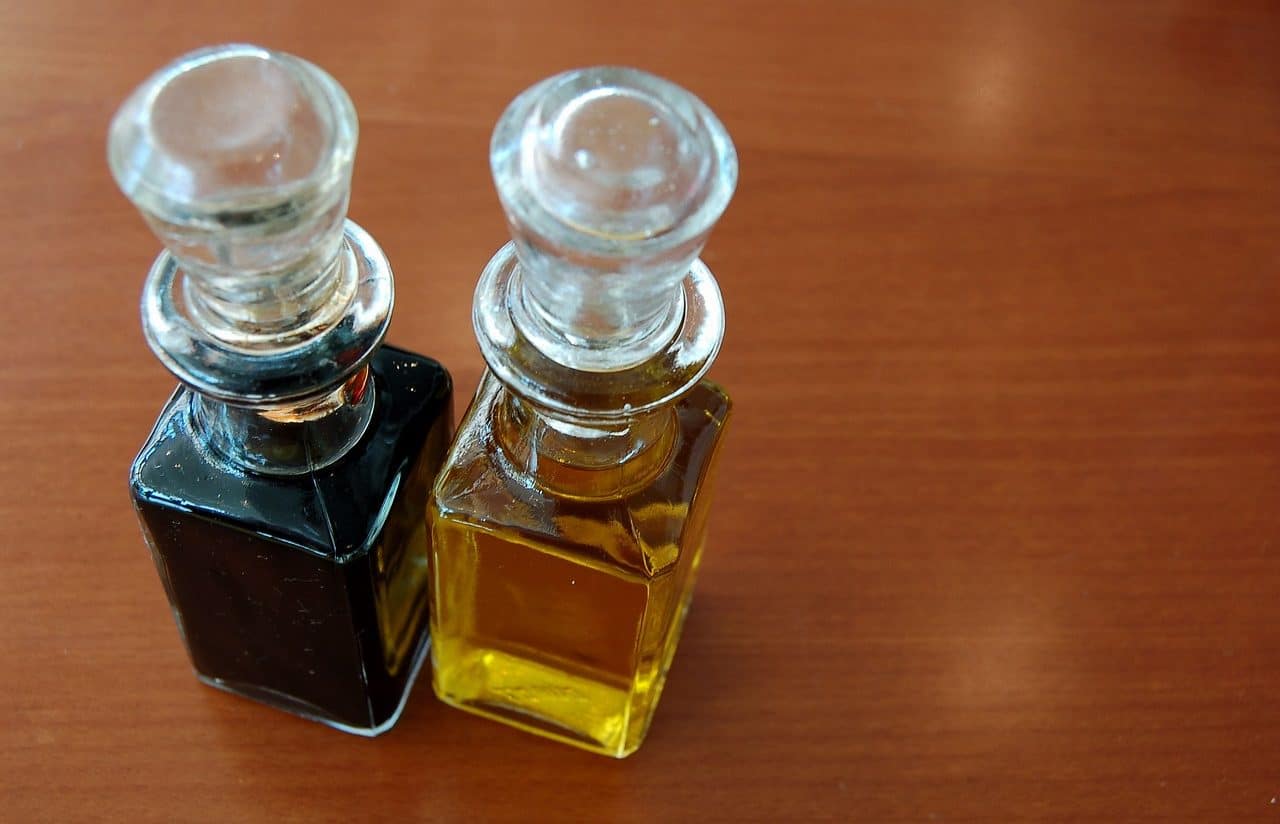
Bottles of balsamic vinegar (left) and olive oil (right)
Aceto is a term from the Latin word acētum that used to be used as a synonym for vinegar . Vinegar , meanwhile, is an astringent and sour substance that has acetic acid as one of its most important components.
balsamic vinegar
Today, the concept of aceto is associated with the so-called balsamic aceto , a product originating from Modena ( Italy ) that, according to its Geographical Indication of Origin , must be made with the juice of grapes grown in the region. Generally, however, the notion is used to name liquids similar to Modena vinegar , regardless of the differences in processes and composition.
The original balsamic vinegar was prepared with white grapes , which were crushed to obtain the juice. The liquid was then reduced by placing it on the fire and the must was aged for prolonged periods in different types of wooden barrels . The description of balsamic is linked to the fact that this product was considered a balm : parents made this aceto and gave it to their daughters when they became pregnant since they believed that it contributed to the health of the baby in formation. It was also used as an anti-inflammatory and to disinfect wounds, for example.
Balsamic vinegar, in short, is based on grape must . The juice of this fruit is converted into vinegar, although without being previously transformed into alcohol since the sugar is directly converted to acetic acid by the bacteria found in the barrels. In traditional vinegar, on the other hand, grape juice is made wine by fermenting sugar into alcohol.
Types of balsamic vinegar
It is possible to distinguish between traditional and commercial balsamic vinegar. The first is the most authentic and valuable type. It is produced in the Emilia-Romagna region of Italy, specifically in the cities of Modena and Reggio Emilia . It is made from Trebbiano or Lambrusco grapes and aged for a minimum of 12 years (and up to 25 years or more) in wooden barrels , developing complex, rich flavors.
It comes in two categories, each named after its respective city. These products usually carry the DOP ( Protected Designation of Origin ) indication to guarantee their authenticity.
Commercial balsamic vinegar, on the other hand, is more affordable and widely available in supermarkets . It is often made from different grapes and aged for a shorter period. It may also contain additives such as caramel and thickeners to improve its flavor and texture. Although it is not as complex as the traditional one, it is versatile and used in a variety of dishes.
Quality of balsamic vinegar
The quality of balsamic vinegar is evaluated taking into account several factors:
- Aging time : The longer balsamic vinegar spends in wooden barrels, the higher quality it is generally considered. The traditional ones spend decades aging, which gives them rich, deep flavors and aromas;
- origin : authentic traditional balsamic aceto from Modena and Reggio Emilia are often considered to be of the highest quality due to their tradition and rigorous production methods;
- sweetness and acidity : a good balsamic vinegar balances the natural sweetness of the grapes with the acidity. The flavors should be complex and pleasant to the palate;
- viscosity and texture : it should be soft and silky. The high-quality ones are denser and have a pleasant viscosity;
- certification labels : such as the aforementioned DOP ;
- Ingredients : The preferred ones usually have a minimal ingredient list, with grapes as the only main ingredient;

Balsamic vinegar highlights the flavor of the vegetables.
Health benefits
Balsamic vinegar may offer some health benefits when consumed in moderation, such as:
- rich antioxidant content;
- improves digestion;
- blood glucose control;
- helps in weight loss;
- improves cardiovascular health;
- antimicrobial properties;
- contribution of minerals and vitamins.
